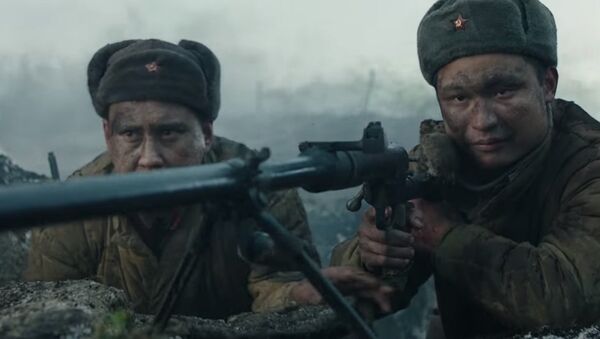Panfilov's Twenty-Eight Guardsmen, or simply Panfilov's 28 Men, is the story of twenty eight soldiers killed in action on November 16, 1941 after destroying 18 German tanks. Next month, Panfilov's 28 Men, a crowd-funded movie produced by Libyan Palette Studios and Gaijin Entertainment, will be released in Russian theaters after over five years in development.
After the collapse of the Soviet Union, Russian cinema suffered a long period of decline, compounded by a lack of funding, the collapse of state support, and the rise of cable television. This trend has affected even Russia's proudest and arguably most sacred historical memory – that of the Great Patriotic War. Lavishly funded efforts by some of Russia's best-known film directors, from Nikita Mikhailkov to Fedor Bondarchuk, have repeatedly flopped, with movie-goers savagely berating the films' creators for historical inaccuracies and 'Hollywood-style' plots.
Filming began in October 2013, and lasted about two years. On November 24, the film will finally make it to the big screen, and hopefully contribute to the revival of great Russian cinema. But the film's creators have another important goal. According to creators' official website, the film's purpose is to help reestablish historical truth — to challenge a series of myths that emerged about the 28 Guardsmen and their heroism following the collapse of the USSR, when all symbols of the Soviet past, including the war, came under intense criticism.
In the run up to its release, the film itself was met with a storm of criticism from revisionist historians, who suggested that the story of the 28 soldiers who stopped the German tanks was "fabricated." This summer, the Russian edition of the BBC even released an article on the subject, titled 'The 28 Panfilov Heroes: Why is the Myth More Popular Than the Reality?' But the story's defenders have stuck to their figurative guns, emphasizing that even if there are some differences between the popular Soviet legend and the historical details, that doesn't change the fact of the soldiers' heroism, nor the broader significance of their actions — the defense of their homeland from Nazi aggression.



